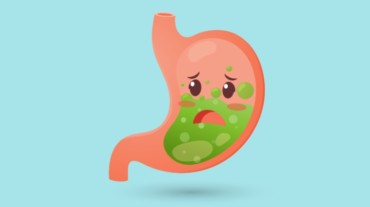
We have known about the goodness of honey since forever. Made by bees from the nectars of flowers, honey is considered to be a healthy alternative to sugar. And given that it’s considered a warm food, helps with weight loss, and has plenty of other health benefits—making it a part of your regular diet seems like a no-brainer. But have you ever wondered if too much honey is bad for you?
While honey is healthy, too much of anything is bad—including this sweet nectar.
If you are wondering how much honey is too much honey, then we have the answers right here for you. According to he American Heart Association, nine teaspoons of honey, 36 grams per day, is enough for men, while women and children can consume upto 6 teaspoons or 24 grams of honey everyday.
Honey also has sugar and carbohydrates—that too in large amounts. So when you go overboard with honey, your blood sugar level tends to shoot up. If you are diabetic, you can see an abnormal rise in your blood sugar levels with can be dangerous. A study, published in Progress in Cardiovascular Diseases, states that high sugar diets, such as one with abundance of honey, can lead to insulin resistance.
Honey is considered a great ingredient to help control blood pressure. But eating too much honey can also put you at the risk of low blood pressure or hypotension. In the long run, this can affect the functioning of your heart. This study, published in International Journal of Molecular Sciences, states that too much honey can reduce systolic blood pressure.
Also Read: Adding honey to hot water can actually be toxic for you. Here’s why
If you suffer from constipation, then honey can make it worse. And even if you don’t, too much honey can block you up thanks to the high content of fructose in it. Moreover, honey can also lead to bloating as well, If you are wondering can honey cause diarrhoea, then yes it can due to your body’s inability to digest the sugars in honey. Honey is one of the FODMAP foods that should be avoided if you suffer from IBS, according to this study published in International Journal of Preventive Medicine.

If you are watching your weight, then controlling the amount of honey you are consuming is very essential. The high content of calories, sugar, and carbohydrates present in honey can aid weight gain. Honey has 64 calories in one teaspoon, and so eating too much honey can make you put on weight.
When you have too much honey, you are also having too much sugar which can promote tooth decay. According to the USDA National Nutrient Database, about 82% of honey is made of sugar and this is enough to damage your teeth. Moreover, honey is also sticky in nature, meaning it can cling to your teeth further promoting tooth decay.
Select Topics of your interest and let us customize your feed.
PERSONALISE NOW